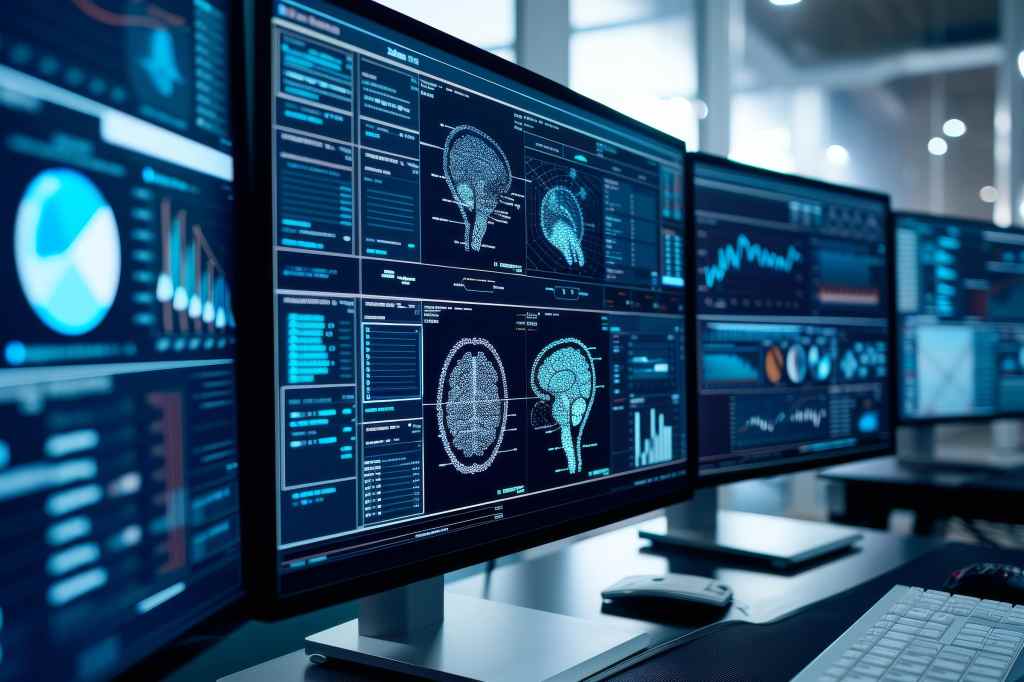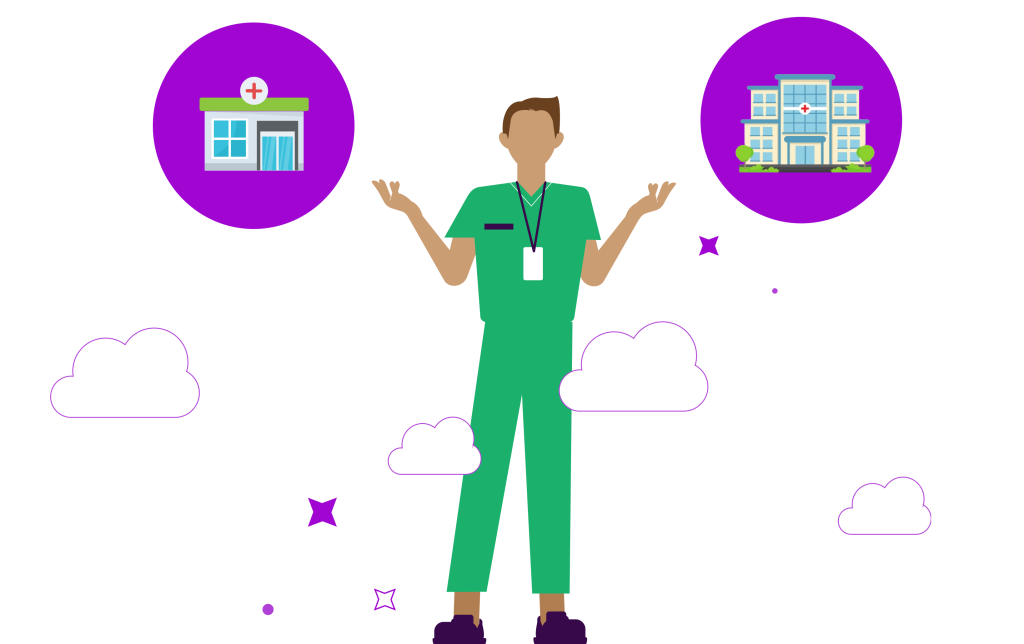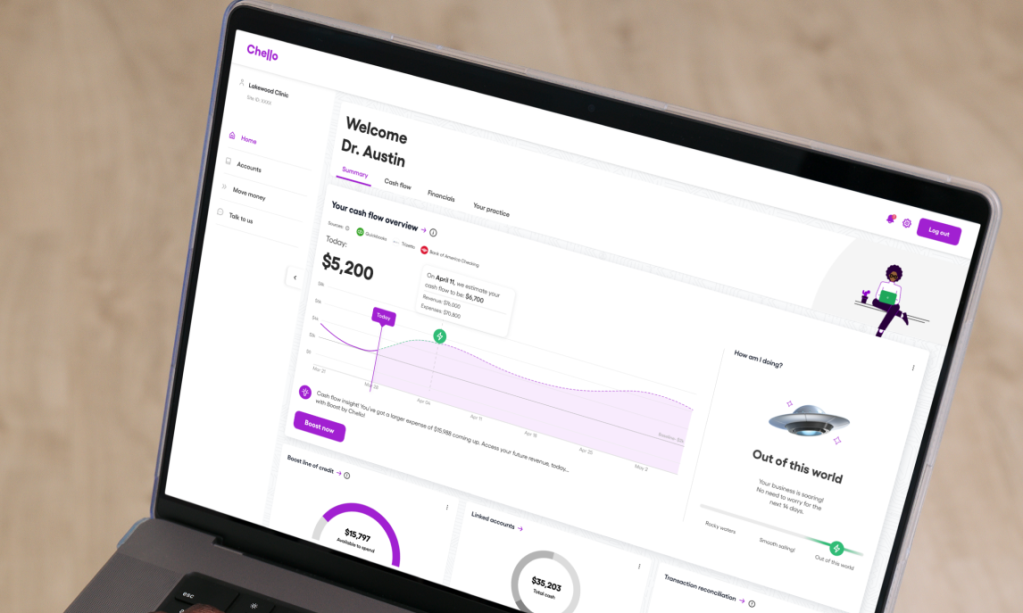Is Generative AI in Healthcare the New Frontier?
Generative AI in Healthcare

Many, if not almost all, have heard of the term AI. AI has many complexities and categories though and one that has emerged as a groundbreaking technology in many sectors is generative AI. It’s a category of AI systems that can create completely novel content and data all by itself and excels at pattern creation as opposed to pattern recognition. This can be valuable in many realms, but especially healthcare as this is an industry that must be cutting-edge and constantly modernizing. It can be a matter of life or death if it is not.
Generative AI is revolutionizing healthcare by offering new solutions to longstanding challenges that physicians have faced, but its successes haven’t come without some scrutiny. Executives and key healthcare players must understand the technology to be able to truly capitalize on its potential. They also need to be primed to sidestep any of the risks involved. More on that later.
The impact of generative AI on healthcare and how it is reshaping the landscape of patient care, treatment, and beyond is mesmerizing. As the global generative AI market size is projected to hit around 118 billion by 2032, there is no telling how healthcare will transform. But let’s talk about what we do know . . .
The American Medical Association conducted a survey in late 2023 of 1,081 physicians about their sentiments regarding using AI in their practice and these are some of the key findings:
- Only 38% of physicians surveyed by the AMA say they currently use AI in their practice.
- Physicians expressed the most zeal for AI tools that alleviated administrative burdens, such as documentation (54%) and prior authorization (48%).
- Concern was highest for AI tools that impact patient-physicians relationship (39%) and patient privacy (41%).
Applications of Generative AI in Healthcare
- Developing New Drugs: Sophisticated AI technology streamlines the drug discovery process by anticipating the shapes of molecules and discerning promising candidates for therapy. On average, it takes nearly 10 to 15 years to develop a new medicine and can costs nearly $2.6 billion so if that process can be expedited, much good can come of it.
- Enhancing Patient Care: Algorithms generated by artificial intelligence enhance the automation of healthcare workflows (including submitting medical insurance claims) and provide decision-making support, thereby enhancing both patient care quality and operational effectiveness.
- Improving Medical Image Interpretation: Generative AI improves the interpretation of medical imaging by creating high-quality images and enhancing diagnostic precision. It has most notably helped analyze images in radiology, pathology, and cardiology. For example, in the field of radiology, generative AI has proven to be particularly beneficial. It can generate synthetic images that closely resemble real patient scans, allowing radiologists to practice and refine their skills without the need for additional patient data. This not only helps in training new radiologists but also enables experienced radiologists to stay updated with the latest techniques and advancements. Generative AI also has the ability to digest many sources of information too so it helps doctors get a comprehensive patient story which can in turn help in them in reading medical images.
- Documenting Patient Encounters: This may seem small but attached to every hour that a physician spends with a patient, is two hours of administrative work. Generative AI can make this a whole lot easier by recording conversations and integrating them into the electronic medical record. This saves doctors lots of time.
- Strengthening clinical judgement: Electronic Health Systems hold a bounty of patient information. AI plus machine learning can examine that data and then make predictions and outcomes regarding health as a result. This can help doctors in many capacities, including treatment plan recommendations.
- Helping Manage Finances: While doctors are experts in their fields, they did not open a practice to become a banker. There are financial hurdles that doctors will have to face along their practice ownership journey—many that include specifics they may not have studied in medical school. Generative AI can help physicians quickly unpack any terminology to do with financing or funding that they are unfamiliar with. They can also use special tools, Chello for example, that uses special AI technology to help predict future cash flow.
Ethical Considerations and Challenges

While the potential benefits of generative AI in healthcare are undeniable, some ethical considerations and challenges must be addressed. One of the primary concerns is the issue of data privacy and security, as the use of generative AI involves the processing of sensitive patient information. It is essential for healthcare providers and AI developers to implement robust data protection measures to safeguard patient privacy and ensure compliance with regulatory standards and measures. These measures should not only safeguard patient privacy but also ensure compliance with regulatory standards.
Another challenge associated with the adoption of generative AI in healthcare is the presence of algorithm bias, wherein AI models may exhibit biases based on the data used to train them. This can lead to disparities in patient care and treatment outcomes, particularly for marginalized and underserved populations. AI developers must address algorithm bias and ensure that generative AI technologies are designed and implemented in a fair and unbiased manner
The integration of generative AI into healthcare systems poses challenges in terms of regulatory compliance and system interoperability. Healthcare providers must navigate complex regulatory frameworks governing the use of AI in healthcare, ensuring that generative AI technologies adhere to industry standards and legal guidelines. Compliance with regulations such as the General Data Protection Regulation (GDPR) and the Health Insurance Portability and
Accountability Act (HIPAA) ensures the lawful and ethical use of generative AI. Regular audits and assessments should be conducted to identify and address any potential vulnerabilities or non-compliance issues. Additionally, the seamless integration of generative AI into existing healthcare systems requires careful planning and coordination to optimize its effectiveness and usability.
Future of Generative AI in Healthcare
As generative AI continues to evolve and advance, the future of healthcare holds great promise for this transformative technology. Researchers and developers are exploring new applications of generative AI in healthcare, such as predicting patient outcomes, optimizing treatment plans, and developing targeted therapies for complex diseases. The potential for generative AI to revolutionize healthcare delivery and improve patient care is immense, making it a key area of focus for future innovation and development.
Collaboration between AI developers, healthcare providers, and regulatory bodies will be essential in driving the advancement of generative AI in healthcare. By fostering partnerships and working together to address key challenges and opportunities, stakeholders can harness the full potential of generative AI to enhance patient care and treatment outcomes. The future of healthcare is bright with the integration of generative AI, offering new possibilities for personalized medicine, predictive analytics, and patient-centered care. Furthermore, collaboration can help address the challenge of bias in generative AI. It is important to ensure that the algorithms are trained on diverse and representative datasets to avoid biased outcomes. Healthcare providers can contribute by providing diverse patient data, while regulatory bodies can establish guidelines to promote fairness and transparency in the development and deployment of generative AI in healthcare.
Generative AI is reshaping the landscape of healthcare by offering innovative solutions to complex challenges and driving improvements in patient care and treatment outcomes. By leveraging the power of generative AI in medical imaging analysis, drug discovery, and personalized medicine, healthcare providers can deliver more personalized, efficient, and effective care to patients. While ethical considerations and challenges remain, the future of generative AI in healthcare holds great promise for advancing the quality and accessibility of healthcare services. With continued research, collaboration, and innovation, generative AI has the potential to transform the way healthcare is delivered and revolutionize the patient experience.






